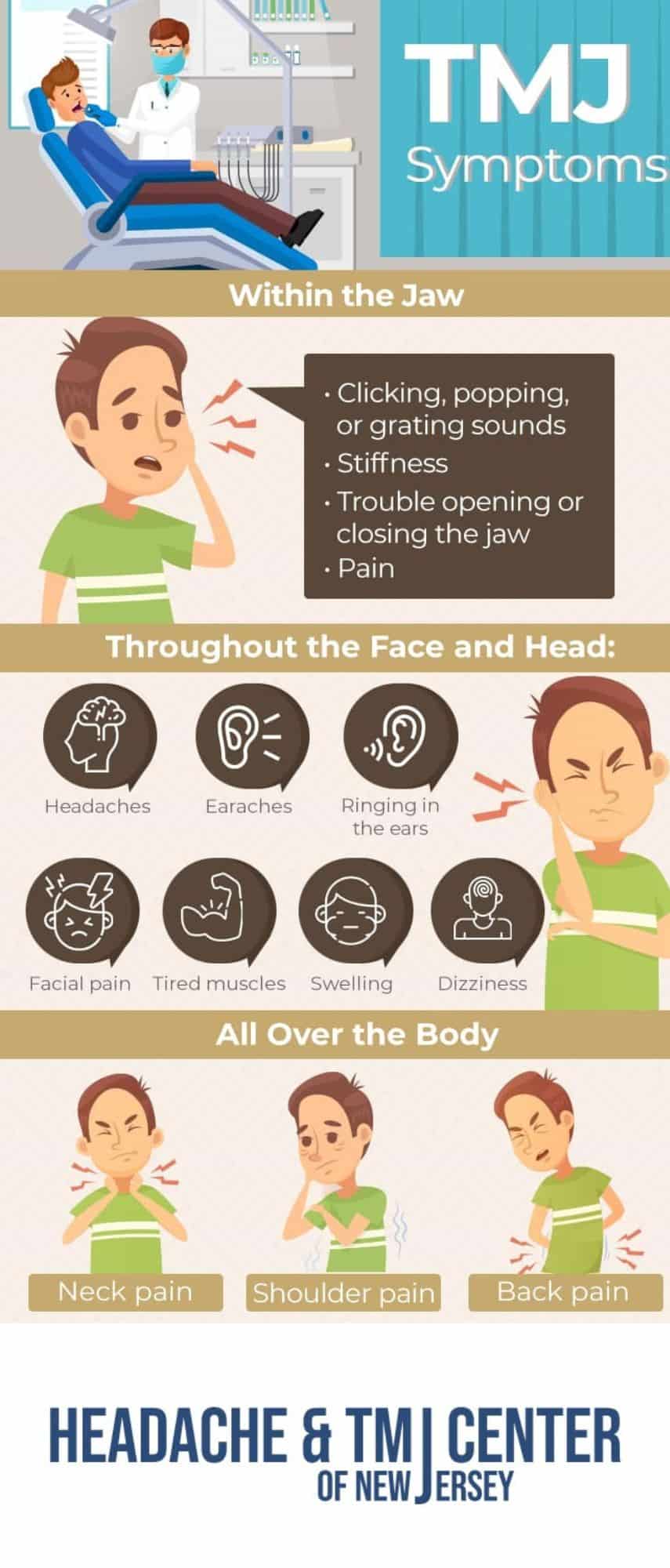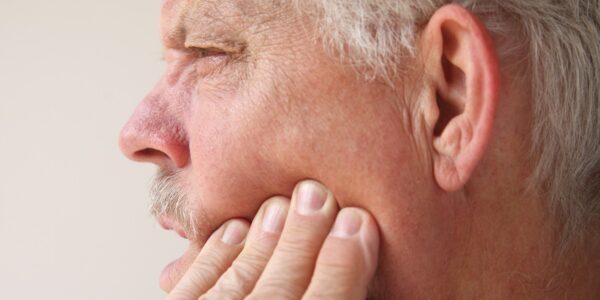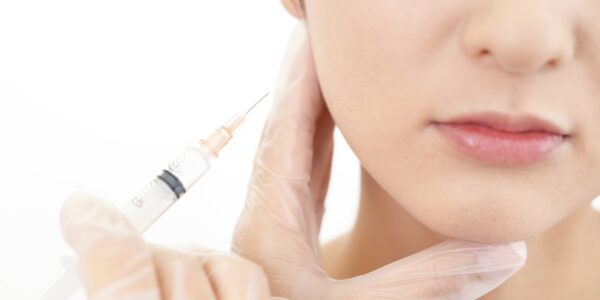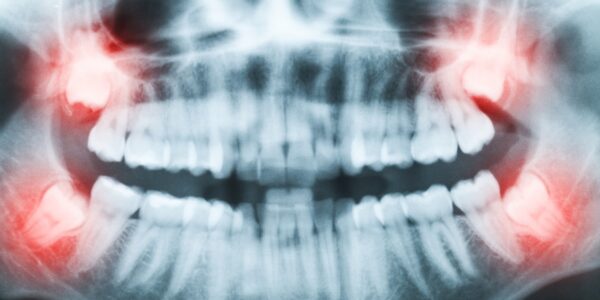Do you often wake up with a sore jaw or hear a clicking or popping sound while you chew? Do you have trouble opening your mouth widely? Do you suffer from inexplicable neck, shoulder and back pain or migraine headaches?
If you said “yes” to any of these questions, you might be suffering from temporomandibular joint (TMJ) disorder (TMD). TMD is more common that you may think. More than 10 million Americans suffer from TMD, according to the Academy of General Dentistry.
Fortunately, New Jersey TMJ Specialists Drs. Ivan & Allan Stein have a solution. At the Headache and TMJ Center of New Jersey, they offer a wide-range of TMJ treatment options to relieve painful TMD symptoms, allowing patients to eat, yawn, and smile again without any discomfort.
What is TMJ Disorder?
TMD, often referred to as TMJ, is the result of chronic stress on the temporomandibular joint. This excessive stress is commonly caused by bite misalignment or an imbalance in the jaw muscles. Chronic stress on the TMJ may cause the ligaments in the region to stretch out. It can also cause the jaw muscles to shorten or lengthen to compensate for the stretched ligaments.
Causes of TMD
What causes the added stress on the TMJ that results in stretched ligaments and imbalanced jaw musculature? One of the most common causes of TMD is an abnormal dental structure, which, in turn, is often the result of:
- Bruxism (teeth grinding)
- Teeth clenching
- A misaligned bite
- Missing or damaged teeth
- Dental work
- Traumatic injury to the area
- Inflammation related to illness (e.g., rheumatoid arthritis, osteoarthritis)
- Chronic stress

TMJ Symptoms
TMD is a progressive degenerative disorder. TMD symptoms can be temporary or permanent and can range from mild to severe. Women suffer from TMD more often than men. TMD generally occurs in individuals between the ages of 20 and 40. TMD symptoms include:
- Jaw pain, or tenderness throughout the jaw, face, head, neck and/or shoulders
- Restricted range of motion of the mouth (i.e. trouble opening the mouth widely)
- A jaw that gets “locked” in the open or closed position
- Grating, popping, or clicking sounds when opening/closing the mouth or chewing
- Difficulty chewing
- An uncomfortable, misaligned bite
- Swelling on one or both sides of the face
- A tired feeling throughout the face
- Toothaches, earaches and / or neck aches
- Headaches and / or severe migraines
- Hearing problems
- Tinnitus (i.e., a ringing in the ears)
- Sinus pain
- Dizziness or problems with balance
Unfortunately, these painful and burdensome symptoms often interfere with daily life. If you seek relief from the pain and interference caused by TMD, contact Headache and TMJ Center of New Jersey. Drs. Ivan & Allan Stein are experts in TMJ treatment. They can treat the underlying cause of your TMD, thereby relieving your painful symptoms. You will be happy to know that TMD can often be reversed with the proper care.
TMJ Treatment Options
West Orange TMJ Specialists, Dr. Ivan & Allan Stein, and their team use the most up-to-date diagnostic technology and evaluation techniques to formulate an individualized TMJ treatment plan for patients. They utilize a comprehensive treatment approach using a variety of modalities designed to address muscle and joint imbalances in the jaw, thereby eliminating pain and accelerating the healing process.
TMJ treatment options include:
- Orthotic Therapy. This treatment option involves the use of a custom-fabricated dental appliance that helps maintain a relaxed jaw position, thereby preventing the nerves from over-firing, which in turn prevents muscle spasms. The small acrylic appliance allows the patient to sleep comfortably, without grinding the teeth and exacting further damage.
- Ultrasound Therapy. This treatment for TMJ delivers ultrasound waves that break up scar tissue and adhesions in the deeper muscle and tissue layers. Ultrasound energy also delivers heat, restoring proper blood flow to the affected area.
- Microcurrent Therapy. This TMJ therapy generates a low electrical current that stimulates the body’s production of ATP (a high-energy molecule) in the affected area. The ATP relaxes the muscle tissue, releasing lactic acid and reducing pain in the immediate area.
- Low-Level Laser Therapy. This TMJ treatment option uses a non-heat laser light to trigger ATP production in the muscles and nerves in the affected area. Again, the ATP relaxes the muscle tissue, thus increasing blood flow, decreasing pain and inflammation, and reducing the time it takes for the muscles and joint tissues in the region to heal. Additionally, the laser sends a signal through the nerve to the brain stem, resulting in a pain-inhibiting response.
- Botox Therapy. Injections of Botox temporarily relaxes the jaw muscles to relieve tension and discomfort. Botox injections can be administered conveniently in our office, and only take a few minutes. The effects of the injections last three to six months on average.
- Intramuscular Injection Therapy
- Disclusion Time Reduction. This procedure reduces the bite forces and teeth contacts in relation to muscle activity reducing muscles spasms of the jaw.
- Prolotherapy. Prolotherapy is a homeopathic treatment that involves injecting a special solution — often containing dextrose, lidocaine and sterile water — into the TMJ to induce an inflammatory response. The body responds by activating its natural healing processes in the injection site. As a result, pain is decreased and function is improved.
- Trigger Point Therapy. Trigger point therapy is commonly used to address muscle pain, muscle tension, and muscle spasms. The treatment involves mechanical needling as well as administration of routinely used local anesthetic. The mechanical needling of the trigger point therapy releases muscle tension and muscle guarding, and the local anesthetic will diminish short-term soreness that may be experienced after the treatment.
- Trigger Point Injections: Injections with local anesthetic can help to dull discomfort related to TMJ.
- Steroid Injections: Corticosteroid injections can address inflammation of the jaw muscles to diminish symptoms of TMJ.
- Ultrasound-Guided Injections: Ultrasound technology provides a detailed map of the jaw so our dentist can inject the areas that need treatment most with precision.
What to Expect During TMJ Evaluation
A Joint Vibration Analysis will be completed. This technology has the ability to record any vibration of the TMJ and aide in the diagnosis of severity.
An EMG will be performed. This painless diagnostic procedure evaluates the health condition of the muscles of mastication and nerve cells that control them.
If you desire relief from your painful or bothersome TMJ symptoms, contact Headache and TMJ Center of New Jersey today for a free consultation by calling today.




